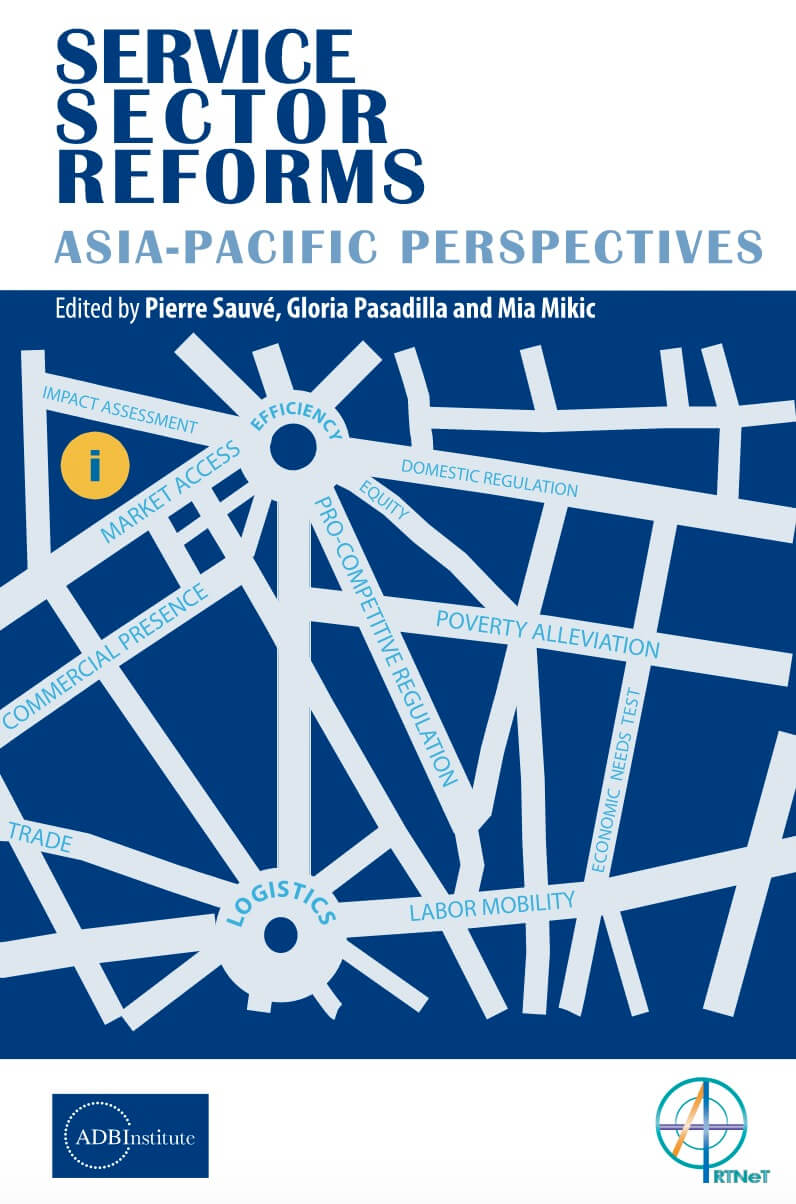Service Sector Reforms: Asia-Pacific Perspectives

Gaining a better understanding of the service economy and its linkages to other key sectors; identifying the types of policies that can sustain the development of a knowledge-based economy; developing the analytical tools and proper metrics with which to gauge with greater precision the impacts of service sector reforms, policies and trade policy commitments on the growth and development of nations and how such spoils are divided among citizens; and enhancing the service sector data upon which sound policy decisions must ultimately rest; are all centrally important elements to countries’ long-term prosperity given the dominant role that services play in the economic life of all countries.
The Asia-Pacific region is no exception to the above reality. Throughout the Asia-Pacific region, service industries generate a predominant share of output and account for an increasing share of employment. Services have also become a major source of product and process innovation, and are the target of increasing research and development (R&D) expenditure. In the advent of IT revolution-unleashed supply chains and vertical linkages within and across service and manufacturing industries, services are allowing some countries at a lower level of development to leapfrog entire stages of industrial development and insert themselves productively into the new geography of trade and investment patterns. Services rank among many Asia-Pacific countries’ most dynamic capital exporting sectors, accounting for a growing volume of outward investment activity even as they remain the predominant target for inward foreign direct investment (FDI) activity in most countries of the region. They are, moreover, a source of significant and increasing returns to labour mobility at all skill levels.
(ST/ESCAP/2613)


